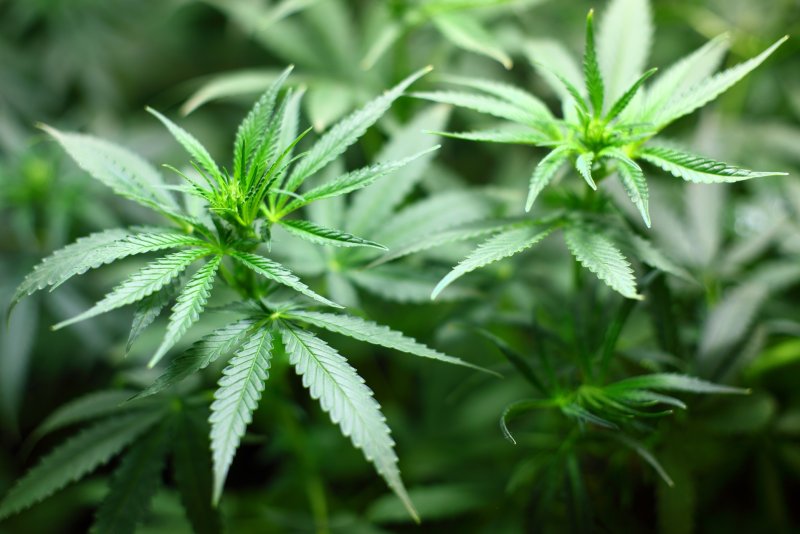Marijuana use among teens may affect their brain development, according to a new study. Photo by 7raysmarketing/
Pixabay
June 16 (UPI) -- Marijuana use during adolescence may affect development of the areas of the brain that control emotions, an analysis published Wednesday by JAMA Psychiatry found.
Teens who reported using marijuana during a five-year period showed signs of reduced thickness of the left and right prefrontal cortices in their brains on magnetic resonance imaging, the researchers said.
Reduced thickness of these regions, which control positive and negative emotions, respectively, has in earlier studies been linked with increased risk for depression and suicide, as well as attention problems.
Analysis of the MRI findings of the roughly 800 teens included in this study indicated that the brain changes did not "precede initiation of [marijuana] use," according to the researchers.
"Taken together, I think our findings provide compelling circumstantial evidence for an effect of cannabis use on the developing adolescent brain," study co-author Matthew Albaugh told UPI in an email.
"That being said, more research on this topic is desperately needed, particularly given increasing trends in the legalization of recreational cannabis use," said Albaugh, a clinical psychologist at the University of Vermont Medical Center in Burlington.
Recreational marijuana possession and use is legal -- for adults -- in 17 states.
Research suggests that 30% to 40% of teens across the country have used the drug, many of them via vaping, or e-cigarette, devices, according to the National Institute on Drug Abuse.
For this study, Albaugh and his colleagues analyzed MRI scans for 799 teens who indicated that they had not used marijuana. The teens were tracked over a five-year period and underwent repeated MRI scans.
Those who reported use of the drug during the study period showed signs of reduced thickness of both the left and right prefrontal cortices compared with those who did not.
The researchers said they are studying the effects of these potentially marijuana use-related brain changes on behavior and cognitive function.
"Our results dovetail with numerous animal studies indicating that adolescence may be a particularly vulnerable developmental window with regard to the effects of cannabis," Albaugh said.
For example, "Some of the cannabis-related cortical thinning that we observed was related to aspects of impulsivity at age 19, suggesting a potential consequence of adolescent cannabis use," he said.















